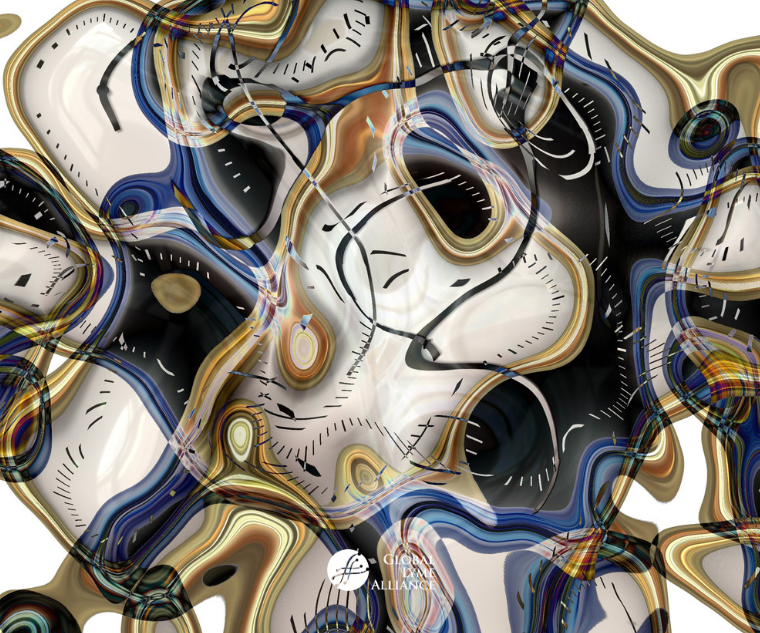
by Jennifer Crystal
I’d already lost three years of my life to illness. Then I got a taste of resumed independence and health, only to have those intimations of well-being quashed once more. The rush to get back on track and catch up to my friends felt even more pressing when I relapsed. Time seemed to be moving too fast.
Time is a funny thing. As children we hope for time to pass quickly, so we can get to the next big milestone: a birthday, Christmas, middle school graduation, a driver’s license. When we turned 21, my friends and I were excited when we didn’t get carded in a bar, because that meant we looked our age. We always wanted to look and be older than we were.
When we turned 30 we hoped we would be carded, because that meant we looked younger than we were. As we aged, we were no longer hoping for time to pass quickly; we wanted it to slow down. We missed the good old days of college, when life was simpler. Now we couldn’t believe how fast time moved. In the blink of an eye friends were getting married, having babies, buying houses. Then we were forty and people were practically shouting, “Slow time down! We’re already at mid-life!”
As a patient of chronic tick-borne illness, I was having a different sort of mid-life crisis.
I had missed the latter half of my twenties to illness, and didn’t earn my graduate degree until my late thirties. At 40 I was just starting to look for the serious relationship and the serious job and the life plan that my contemporaries had figured out a decade earlier. Now, I still feel like I have a lot of catching up to do. It’s hard but I try to accept that I’m moving at my own pace and will achieve my goals in my own time, the same way I achieved remission over many years.
During the first five years that I battled tick-borne illness, I had one major relapse that set me back to square one. I was 28 years old. I’d already lost three years of my life to illness. Then I got a taste of resumed independence and health, only to have those intimations of well-being quashed once more. The rush to get back on track and catch up to my friends felt even more pressing when I relapsed. Time seemed to be moving too fast.
It also moved very slowly. I was all too quickly reminded how days drag on when you’re bedridden. It can be hard for healthy people to understand this, but now that I’ve stood on both sides of the time divide, I understand why it’s difficult for each side to understand the other.
When you’re healthy, you’re out living your life. In a day’s time you might work, take care of your kids, go grocery shopping, do laundry, run errands, put out small fires, and fall into bed at night realizing you never called so-and-so back or returned an email, because the busyness of daily life got in the way.
When you’re sick, you’re waiting all day for that phone call or email, because you have nothing else to do. You can’t work or even leave the house, and most days you’re too tired, and your brain fog is too wearying, to do “restful” activities like watch TV or read. You just sit there listening to the tick of the clock, waiting to get well, waiting for someone to call, waiting for something to happen. It’s excruciating.
The divide between healthy time and sick time can feel like a glass wall. You can see in to the other, healthierperson’s world, but you can’t step through the barrier and rejoin it. Sick people can envy healthy people because they’re able to do everyday things. But we don’t always understand that those things can be draining and overwhelming to the point that the healthy person can’t keep up with everything, including checking in on asick person.
On the flip side, healthy people can envy sick people because they think it sounds nice to have so much “free” time. They’d like to lounge around, to read or watch TV, but they don’t realize that the sick person doesn’t feel well enough to enjoy those basic activities. Living with chronic tick-borne illness is like having the flu and a hangover every single day, sometimes for years on end.
Being sick is not a vacation, and being healthy is not a walk in the park.
Sick people may eventually get well enough to cross the wall into the world of the healthy. Healthy people could take sick at any time. We can’t control when we will break through the glass wall dividing those two worlds. We can, however, peer closely through the glass, seeing more clearly what life looks like on the other side.
 Opinions expressed by contributors are their own.
Opinions expressed by contributors are their own.
Jennifer Crystal is a writer and educator in Boston. She has written a memoir about her journey with chronic tick-borne illness, for which she is seeking representation. Contact her at: lymewarriorjennifercrystal@gmail.com.

Jennifer Crystal
Writer
Opinions expressed by contributors are their own. Jennifer Crystal is a writer and educator in Boston. Her work has appeared in local and national publications including Harvard Health Publishing and The Boston Globe. As a GLA columnist for over six years, her work on GLA.org has received mention in publications such as The New Yorker, weatherchannel.com, CQ Researcher, and ProHealth.com. Jennifer is a patient advocate who has dealt with chronic illness, including Lyme and other tick-borne infections. Her memoir, One Tick Stopped the Clock, was published by Legacy Book Press in 2024. Ten percent of proceeds from the book will go to Global Lyme Alliance. Contact her via email below.